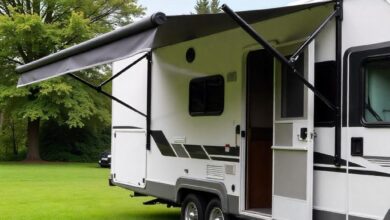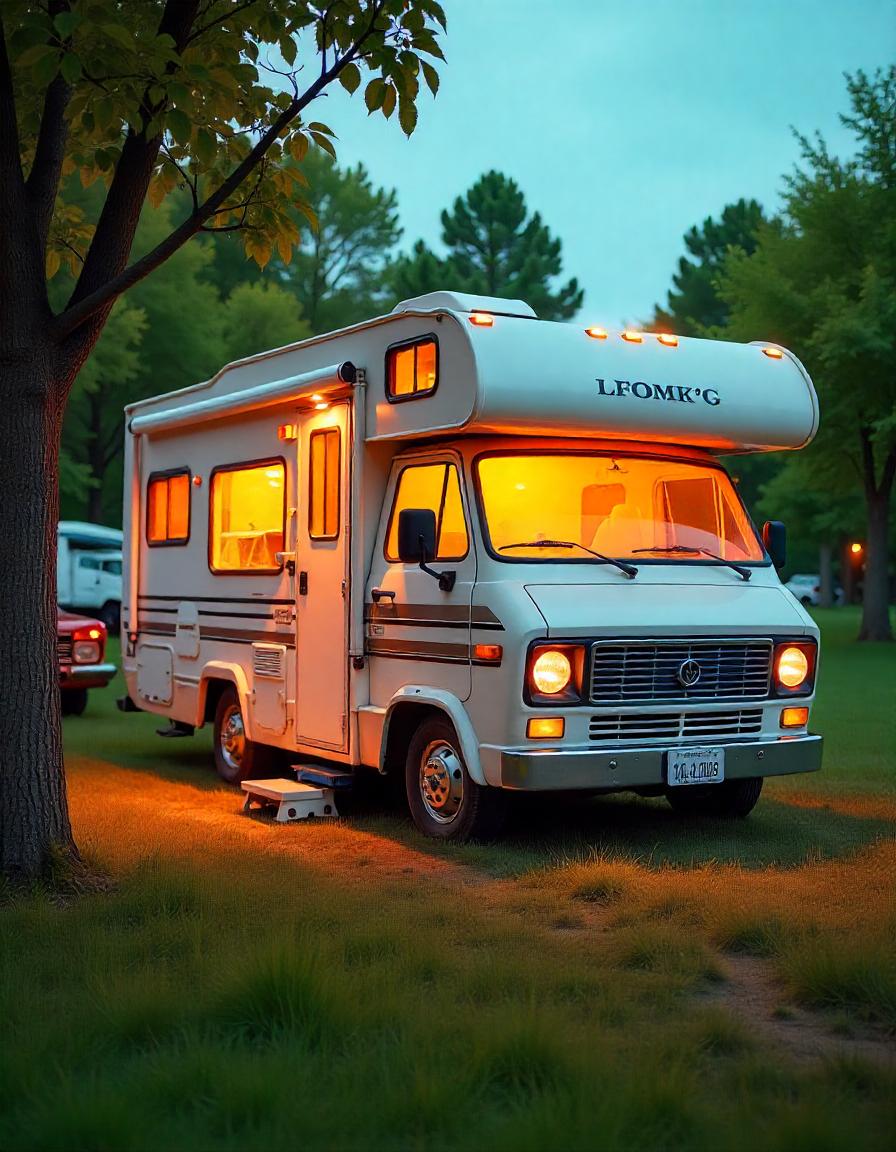RV Stabilizer Jacks: Types, Installation, and Buying Tips
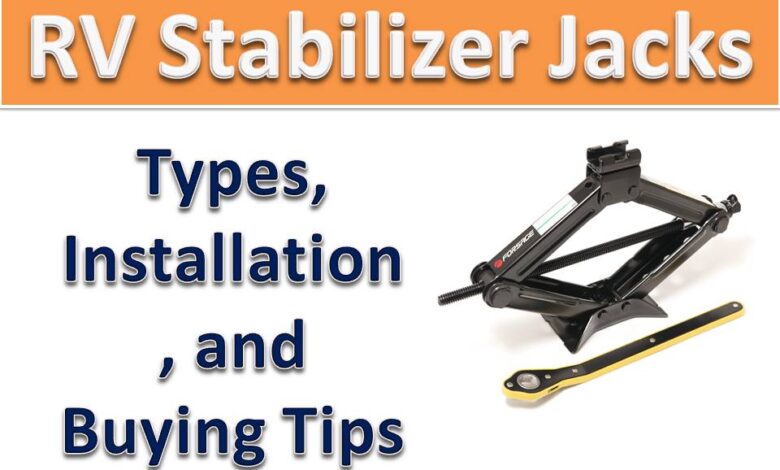
Table of Contents
Introduction to RV Stabilizer Jacks
What Are RV Stabilizer Jacks and Why Are They Essential?
RV stabilizer jacks are those products on your RV that help to reduce rocking movement of your recreationally used vehicle when it is parked. While leveling jacks basically aim at leveling your RV on different surface, stabilizer jacks are designed to minimize rocking and swaying. This makes your RV feel more grounded and steady than the basic designs, I have seen people walking or window gusts rocking an RV. For anyone desiring a comfortable living in their RV, stabilizer jacks are one of the must-have accessories.
How Stabilizer Jacks Improve RV Living Comfort
Stabilizer jacks also make life within an RV more comfortable by addressing the motion that may occur inside an …When moving around, cooking or even sleeping. Just think about being able to rest your body when the movement reminds you more of a boat ride than car travel. Stabilizer jacks do this on the other hand by ensuring the RV is grounded firmly and therefore much more stable. Apart from increasing convenience, they also safeguard interior RV parts from friction brought about by consistent motion in the long run.
Understanding the Different Types of RV Stabilizer Jacks
Overview of Stabilizer Jack Types
There are the following kinds of RV stabilizer jacks: The difference between them is based on their purpose and size, specialized for certain kinds of RV. The type that should be used depends on the RV’s weight, stability requirement and whether the user wants a manual or automatic type of sway control. They are: scissor jacks, stack jacks, telescopic jacks, and electric stabilizer jacks. Now, let’s look at each type of product in greater detail so you’ll know better what they provide.
Scissor Jacks
Scissor jacks are deemed as one of the most general and multitalented stabilizer jacks existing. Little Jacks are scissor-type which expand and are easy to use and suitable for mid-size RVs. They are usually mounted to the RV chassis and, by simply using a handle or a wrench, they extend down to give a firm contact to the ground. They are very long lasting, relatively cheap, and can accommodate small amounts of weight and thus perfect for anyone in search of cheap yet good equipment.
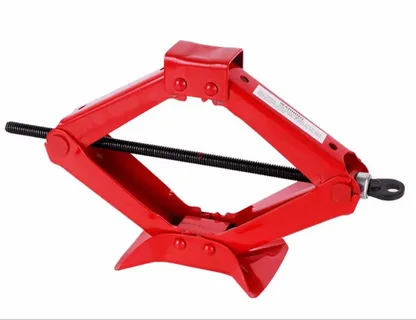
Stack Jacks
Stack jacks on the other hand are light in weight, easily portable, and easily storable, it is ideal for small trailers and lightweight RVs. These are mainly employed in two or four with the appropriate point resting on the support required. Stack jacks are usually variable and normally it takes a shorter time to erect and dismantle the stacks. They may not be well suited for big rigs but for many RVers wanting mobility convenience and affordable they are ideal.
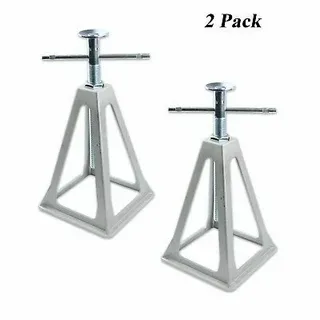
Telescopic Jacks
Telescopic jacks are designed to support much larger and far heavier RVs than the gravity type. The selection of these jacks includes the use of a telescoping function, whereby the jacks can gain or reduce height to suit that of the RV. cases telescopic jacks are preferred due to their ability to be adjusted in fine stages especially when dealing with an uneven terrain. They are often more solid and retention in mobilization they are ideal for larger RVs or motor homes which require some added support due to movement.
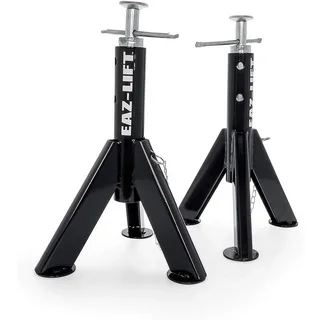
Electric Stabilizer Jacks
Electric stabilizer jacks are as easy to use as their manual counterparts and are usually found on more substantial RVs or where the difficulty of the manual operation isn’t an issue. Electric jacks take only one push of a remote control and it pulls out and prepares the RV for movement by adjusting every crank on its own. It is advisable for people who do a lot of traveling in their RVs and require easy means of putting up a campsite in the shortest time possible. While these are relatively costly, the time and energy to achieving the goals that are especially advantageous for bigger
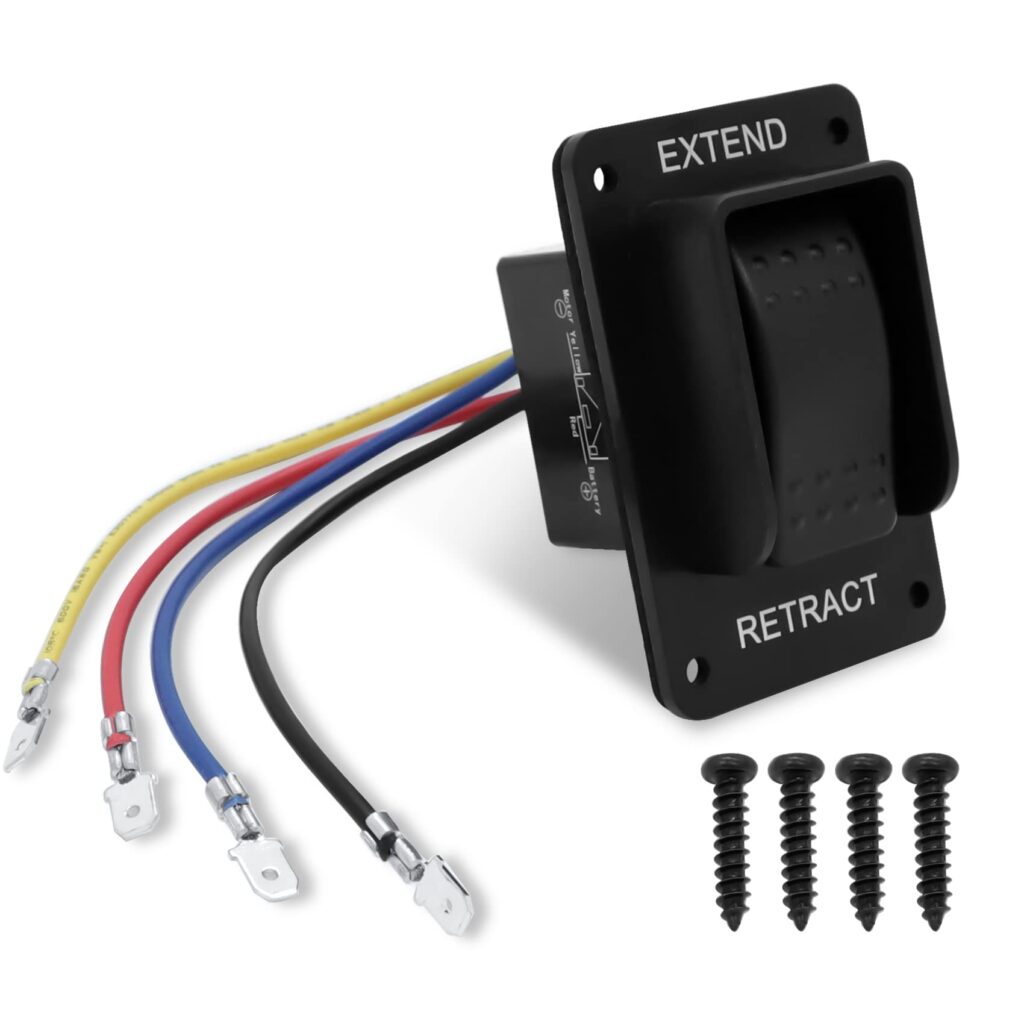
Comparing Manual vs. Electric RV Stabilizer Jacks
Manual Stabilizer Jacks Manual stabilizer jacks are the more traditional, cost-effective option for RV owners. They typically use a scissor or stack design, allowing them to extend by hand with a crank or wrench. Let’s dive into the pros and cons:
- Pros:
- Cost-Effectiveness: Manual jacks are generally more affordable than electric models, making them ideal for budget-conscious RV owners.
- Simplicity and Reliability: With fewer mechanical parts and no reliance on electricity, manual jacks are less prone to malfunctions.
- Lightweight and Portable: Often lighter and easier to store, these jacks are perfect for smaller RVs and trailers.
- Cons:
- Increased Effort: Setting up manual jacks requires physical effort, as you’ll need to crank or adjust them by hand.
- Time-Consuming Setup: Compared to electric jacks, manual stabilizers can be slower to deploy, especially if you’re adjusting multiple jacks on uneven ground.
Electric Stabilizer Jacks Electric stabilizer jacks are powered by an electric motor, making them easy to operate with the push of a button. They’re popular among RV owners who prioritize convenience and efficiency.
- Pros:
- Easy Setup: Electric jacks allow for quick and hassle-free deployment, saving time and effort.
- Time Savings: With the ability to set up at the push of a button or through remote control, electric jacks reduce setup time, ideal for larger RVs and frequent travelers.
- Cons:
- Higher Cost: Electric jacks tend to be more expensive than manual models, both in initial purchase and maintenance costs.
- Potential Electrical Issues: Electric components can be prone to issues such as power surges, wiring malfunctions, or component wear, especially in harsh weather conditions.
| Feature | Manual Jacks | Electric Jacks |
|---|---|---|
| Cost | Affordable | Higher cost |
| Ease of Use | Moderate, requires physical effort | Easy, minimal effort |
| Setup Time | Longer setup | Quick setup |
| Reliability | High, no electrical components | Relies on power and wiring |
Which Type is Right for You? When deciding between manual and electric jacks, consider your RV size, budget, and personal comfort. If you have a small to medium-sized RV and want a budget-friendly solution, manual jacks are a great fit. For those with larger RVs who prioritize ease and speed, electric jacks are ideal. Frequent travelers or those who often camp on uneven ground may also prefer electric jacks for the time saved.
Read Also : Does an RV Use a Household Faucet? : How to Replace RV Awning Fabric?
How to Select the Best RV Stabilizer Jacks for Your Needs?
Factors to Consider
- Weight Capacity: Always ensure the stabilizer jack can support the weight of your RV. Most jacks will list a maximum weight capacity; choosing one slightly above your RV’s weight adds an extra layer of security.
- Ease of Installation: Manual jacks are generally straightforward to install, but electric jacks may require more setup. Electric models sometimes need professional installation, especially if wired into the RV’s power system.
- Terrain Compatibility: For rough or uneven terrains like gravel or dirt, jacks with a larger base or stabilizer pads work best to prevent sinking or tilting. Electric models are often more suitable for versatile terrains due to their automatic leveling feature.
Top-Rated Brands and Models
Some of the most reputable brands for RV stabilizer jacks are BAL, Camco, and Lippert. Here are some popular models:
| Brand | Model | Description |
| BAL | C Series | Ideal for smaller trailers and lightweight RVs |
| Camco | Olympian Stack Jacks | Portable, lightweight stack jacks |
| Lippert | Power Stabilizer Electric Jack | Great for large RVs with a heavy-duty design |
Price Comparison
Understanding the price range of different jack types can help you set a budget. Here’s a general breakdown:
| Jack Type | Average Price Range |
| Manual Scissor Jacks | $50 – $150 |
| Electric Jacks | $200 – $600 |
| Hydraulic Jacks | $500 – $1,000 |
| Stack Jacks | $30 – $100 |
Best RV Stabilizer Jacks for Trailers, Campers, and Motorhomes

Best Stabilizers for Small Trailers
For smaller trailers, stack jacks or lightweight scissor jacks are ideal. They’re easy to use, portable, and sufficient for the reduced weight and dimensions of small trailers. Some excellent options include:
- Camco Olympian Stack Jacks: These lightweight jacks are designed for smaller RVs and pop-up campers, making them easy to store and quick to set up.
Stabilizer Jacks for Larger RVs
For larger RVs, such as fifth wheels and motorhomes, heavier-duty options like hydraulic or electric jacks are better suited. These jacks offer greater stability and higher weight capacity to accommodate the larger size and weight.
- Lippert Power Stabilizer Electric Jack: Ideal for heavy-duty support, this electric jack provides efficient leveling and reduces setup time for larger RVs.
Special Features to Look For
When choosing a stabilizer jack, consider these features to improve your RVing experience:
- Automatic Leveling: This feature allows you to set up quickly and ensures stability on uneven ground.
- Anti-Corrosion Coatings: Stabilizers with anti-corrosion coatings will have a longer lifespan, especially in humid or salty environments.
- Adjustable Height: Adjustable jacks are useful for RVs frequently parked on different terrains, as they allow for easy adjustment depending on the slope.
| Jack Type | Ideal For | Key Features |
| Stack Jacks | Small Trailers | Lightweight, easy setup, cost-effective |
| Portable Scissor Jacks | Small to Medium RVs | Compact, affordable, versatile |
| Hydraulic Jacks | Large RVs, Motorhomes | High stability, minimal manual effort |
| Electric Jacks | Large RVs, Fifth Wheels | Quick setup, convenient, powerful |
How to Install RV Stabilizer Jacks?
Step-by-Step Guide for Manual Stabilizer Jacks
Installing manual stabilizer jacks is straightforward but requires a few tools, like a wrench or drill. Follow these steps:
- Position the RV: Ensure the RV is level and parked securely.
- Place the Jacks: Set the jacks under the recommended stabilizing points. Use blocks if necessary to increase stability.
- Extend the Jacks: Use a wrench or drill to lower the jack arms until they are firm on the ground, ensuring the RV is stable but not lifting it.
- Check Stability: Rock the RV slightly to check for any movement, and adjust the jacks if necessary.
Step-by-Step Guide for Electric Stabilizer Jacks
Electric jacks are easier to set up but require attention to electrical connections and safety checks.
- Position the RV: Park the RV securely and ensure it is level.
- Connect Power: Attach the electric stabilizer jack to the RV’s power source.
- Extend the Jacks: Use the control switch to extend the jacks until they stabilize the RV. Be cautious not to overextend.
- Safety Check: Test the stability and check for any abnormal noise or resistance in the jacks.
Common Installation Mistakes
Avoid these common mistakes to ensure a safe and stable setup:
- Overextending Jacks: Avoid overextending as this can strain the stabilizers and may cause damage.
- Misalignment: Make sure jacks are positioned directly under the stabilizing points to provide proper support.
- Using Stabilizers for Lifting: Stabilizer jacks are meant to stabilize, not lift. Attempting to lift the RV with these jacks can damage them and compromise safety.
Safety Precautions During Installation
- Wear Gloves: Gloves protect your hands from sharp edges and reduce the risk of injury.
- Avoid Overextension: Overextending can put strain on the jacks and affect their lifespan.
- Stay Clear of Moving Parts: When extending or retracting electric jacks, avoid placing hands or feet near moving parts.
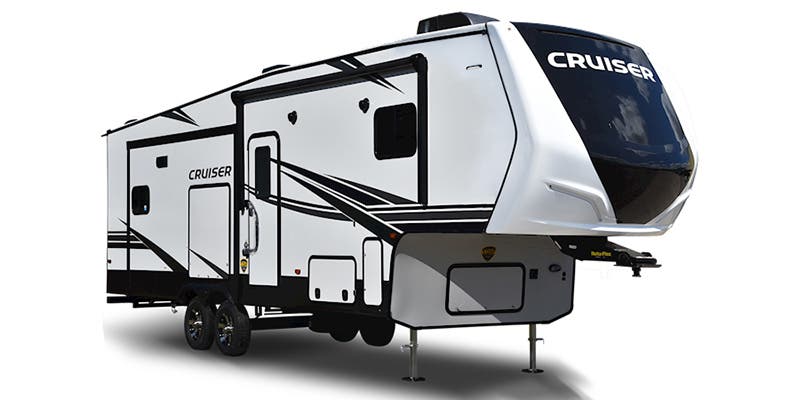
Maintaining Your RV Stabilizer Jacks for Longevity
Cleaning and Rust Prevention
Regular cleaning prevents rust and keeps the jacks in good condition:
- Remove Dirt and Debris: Use a damp cloth to wipe down jacks, removing dirt, mud, or other debris that could lead to corrosion.
- Apply Anti-Rust Spray: Anti-rust sprays, such as WD-40, help prevent corrosion, especially in humid conditions. Apply the spray after cleaning and drying the jacks.
Routine Inspections and Repairs
Regular inspections help catch issues early. Look for:
- Signs of Wear: Inspect for bent or cracked metal, which may indicate the need for repair or replacement.
- Difficulty in Extension: If a jack is hard to extend, check for rust or obstruction. Lubricate or clean as needed.
Lubrication Tips for Smooth Operation
Lubricating moving parts keeps jacks operating smoothly:
- Use a Light Oil or Silicone Spray: Light oils are best for manual jacks, while silicone spray works well for electric jacks.
- Apply Sparingly: Too much lubricant can attract dirt. Apply lightly, and wipe off excess to avoid buildup.
Winter Storage Tips
Proper storage during winter or long breaks prevents rust and damage:
- Clean Thoroughly: Before storing, clean the jacks and dry them to prevent rust.
- Store Indoors or Cover: If possible, store the jacks indoors. Alternatively, cover them with a protective layer to shield against moisture and cold.
- Release Pressure: Lower any jacks that remain on the RV to release pressure on the joints, preserving their integrity.
| Maintenance Task | Recommended Frequency | Purpose |
| Cleaning and Rust Prevention | After each trip or monthly | Prevents corrosion and buildup |
| Routine Inspections | Monthly or before long trips | Identifies wear, extends jack life |
| Lubrication | Monthly or as needed | Ensures smooth movement, prevents jamming |
| Winter Storage Prep | At end of camping season | Protects against rust and winter conditions |
Troubleshooting Common Issues with RV Stabilizer Jacks
Despite their durability, RV stabilizer jacks can occasionally experience issues. Here are some common problems you might face and how to troubleshoot them:
1. Jack Won’t Extend or Retract
- Cause: This could be due to debris or rust buildup in the jack mechanism, or there might be an electrical issue (in electric jacks).
- Solution:
- For manual jacks, clean the threaded rod and apply lubricant to the moving parts.
- For electric jacks, check the power connection and ensure the wiring is intact. If the jack is still not moving, inspect the motor for any issues or consider resetting the system.
2. Jack Is Unstable
- Cause: This may happen if the jack is not placed on a solid, level surface or if it’s over-extended.
- Solution:
- Ensure the jack is placed on stable ground. Use leveling blocks under the jack if necessary.
- Avoid extending the jack beyond its rated capacity. Always follow the manufacturer’s instructions to prevent overextension.
3. Noisy Jacks
- Cause: Noise can result from lack of lubrication or a mechanical fault in the jack.
- Solution:
- Lubricate the moving parts of the jack with an appropriate lubricant, such as silicone spray for electric jacks or grease for manual ones.
- If the noise persists, check for worn-out parts or debris inside the mechanism that could be causing friction.
4. Jack Won’t Stay in Position
- Cause: This can be due to a worn-out lock mechanism or loose parts.
- Solution:
- Inspect the lock and pin mechanisms for wear and replace them if necessary.
- Tighten any loose bolts and ensure the jack arm is properly aligned.
5. Hydraulic Jacks Are Slow to Respond
- Cause: A common issue with hydraulic jacks is air trapped in the system or low hydraulic fluid levels.
- Solution:
- Bleed the system to release any air trapped inside.
- Check and top off the hydraulic fluid level if necessary.
Read Also : How to Install RV Backflow Preventer? : Does Using an RV Green Key Break the Lock?
When to Replace Your RV Stabilizer Jacks?
While RV stabilizer jacks are built to last, certain signs indicate that it may be time for a replacement:
1. Significant Wear or Damage
- If your jacks are showing signs of cracks, severe rust, or bent components that cannot be repaired, it’s time for a replacement.
- Solution: Regularly inspect the jacks for visible damage and replace them if necessary.
2. Difficulty Extending or Retracting
- If your jacks are becoming increasingly difficult to extend or retract, even after cleaning and lubrication, this could indicate internal damage.
- Solution: At this point, it might be more cost-effective to replace the jacks instead of repairing them.
3. Inability to Secure the RV Properly
- If the jacks are no longer able to stabilize the RV firmly and the vehicle rocks when you walk inside, the jacks are no longer fulfilling their function and should be replaced.
- Solution: Look for jacks with higher weight capacity or more robust features that meet your RV’s needs.
4. Constant Malfunctions
- If the jacks experience repeated issues despite troubleshooting, it may be time to invest in new ones. Continuous malfunctioning could be a sign that the jack’s mechanism has worn out beyond repair.
Frequently Asked Questions (FAQ) About RV Stabilizer Jacks
Q: Can I use stabilizer jacks to lift my RV?
- A: No. Stabilizer jacks are designed to stabilize the RV, not lift it. They should not be used for leveling or lifting purposes. If you need to lift the RV, use a jack specifically designed for that purpose, such as a scissor lift or hydraulic jack.
Q: How do I know the correct weight capacity for my RV stabilizer jacks?
- A: The weight capacity depends on your RV’s dry weight. Always check your RV’s manual for the recommended stabilizer weight limits. Generally, lightweight RVs require jacks with a 2,000-3,000 lb. capacity, while larger motorhomes and fifth wheels might require jacks with a 6,000 lb. capacity or more.
Q: Should I install stabilizer jacks on all four corners of my RV?
- A: Yes, according to the majority of RV owners, it is recommended to fit stabilizer jacks to every corner of an RV. This guarantees that the RV does not boulder or rock while one is moving inside or even when the RV is parked in an area with strong winds.
Q: Can I use the same stabilizer jacks for a trailer and motorhome?
- A: That again depends on the model and the weight. For towing the normal trailers, get lighter jacks but for larger motor homes you will need the heavy duty jacks with higher capacities. Be sure to select jacks that are correct for the weight and dimension of the RV you personal.
Q: How long do RV stabilizer jacks typically last?
- A: The duration that your stabilizer jacks will last is determined by the kinds of stabilizer jacks used, their frequency of use and storage environments. Well maintained stabilizer jacks have a life expectancy of about 5 to 10 years minimum before they are replaced with new ones.
Conclusion
Deciding on type, purchasing, and using appropriate RV stabilizer jacks is essential for the provision of a comfortable camping experience. Regardless of whether a small trailer, or a full-fledged motorhome, the right stabilizers will afford security to guarantee the RV will not fall or has a tendency to lean during travel.
To get the most out of their jacks, people should follow the instructions for installation, usage, cleaning and repair of any problems so they would not need to replace them often. Remember these tips and your stabilizer jacks will go on giving you their best for years to come, every time you go on an RV trip.

